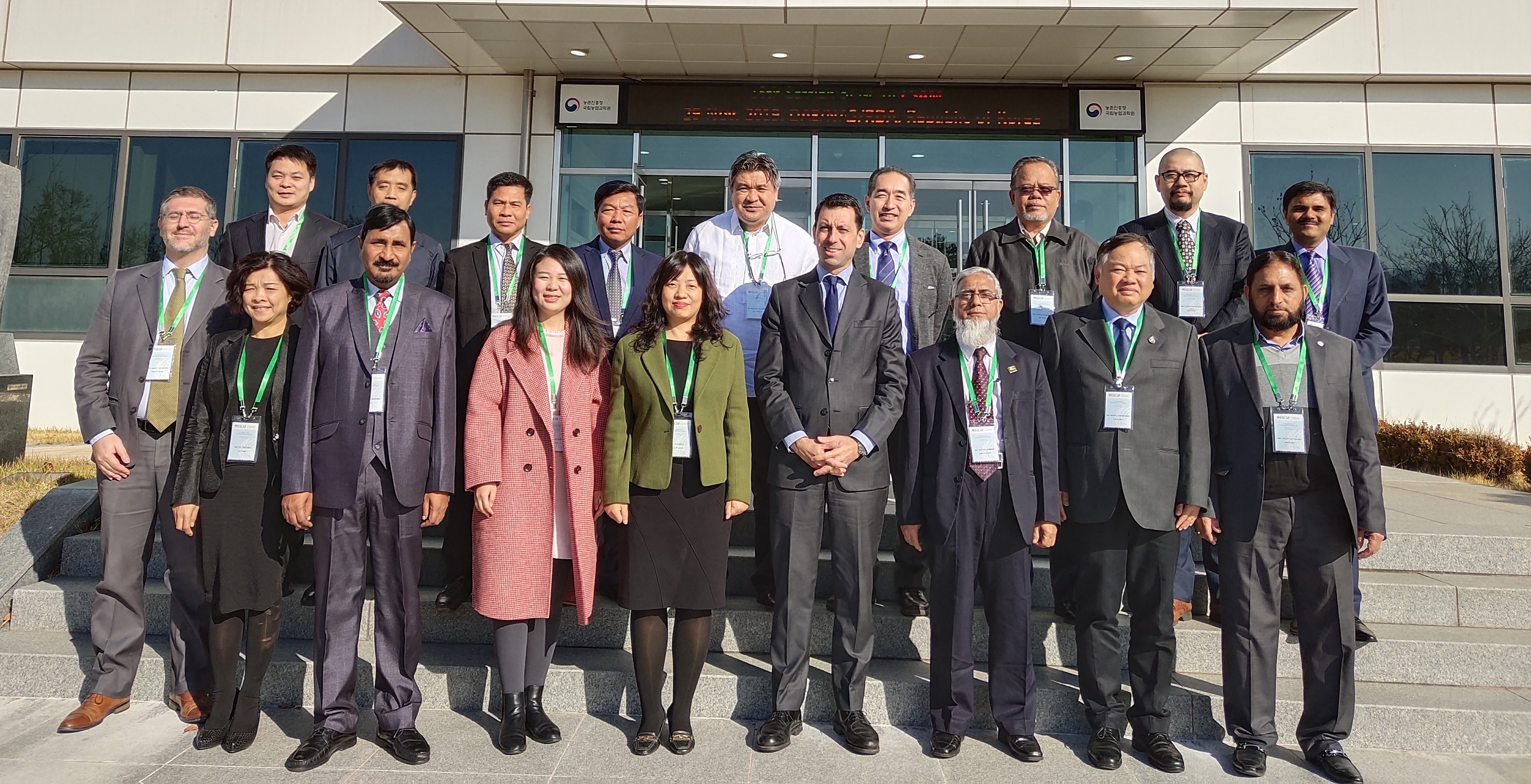Fifteenth Session of the CSAM Governing Council

The fifteenth session of the Governing Council of CSAM was held in Jeonju, Republic of Korea, on 29 November 2019. The session was attended by all nine members of the Council, namely Bangladesh, Cambodia, China, India, Malaysia, Pakistan, Philippines, Thailand, and Viet Nam. In addition, representatives of Japan attended the session as observers.
The Governing Council reviewed CSAM work report and financial status for 2019. Recognizing that sustainable agricultural mechanization has a role to play in the achievement of several Sustainable Development Goals beyond Goal 2 (Zero Hunger), the Council suggested that CSAM explore opportunities to contribute to Goal 3 (Good Health and Well-being) and Goal 14 (Life Below Water) through the promotion of more efficient machinery and reduced use of polluting chemicals. It also recommended that CSAM continue to work for the improvement of national capacities in response to demand expressed by countries, including supporting the establishment of testing facilities.
A summary of recommendations of the independent evaluation of CSAM conducted in 2019 was presented by the external evaluator to the Governing Council. The Council took note of the recommendations and provided useful feedback.
In addition, CSAM presented the proposed five-year development strategy of the Centre (2020–2024) which aims to better delineate CSAM’s strategic direction and conceptualize future actions within its mandate for the next five years, while strengthening the impact of the Centre’s work towards meeting the pressing needs of ESCAP member States in the area of sustainable agricultural mechanization. The Council endorsed the overall direction of the proposed five-year development strategy. In the backdrop of the strategy, the Governing Council also endorsed CSAM’s proposed work plan for 2020 while recommending due attention to monitoring and evaluation.
The Session was also attended by Mr. Kaveh Zahedi, Deputy Executive Secretary of ESCAP. In his welcome remarks, he emphasized the role of sustainable agricultural mechanization in addressing the impacts of climate change and other challenges facing the Asia-Pacific region, building the resilience of smallholder farmers, and supporting advancement towards the Sustainable Development Goals. While noting the progress achieved by CSAM in the recent past, he expressed appreciation for CSAM’s host country China and other member States for making valuable voluntary and in-kind contributions to support the programmes and operations of the Centre.


